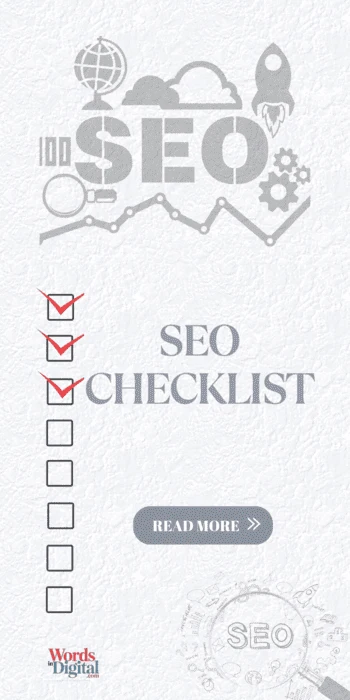
Contents
Nothing Starts Without Writing
Everything starts with writing valuable and interesting content.
And here begins the Writing Guide for Content Marketers….
1. What Skills Do You Need?

If you want to be a copywriter or content writer, it’s not enough to just be a good writer. You need to have some basic skills that will improve your writing quality and help you stand out in the industry.
1.1. Writing Skills
Grammar and spelling: Your writing must be fluent, accurate, and understandable.
Communication skills: The ability to convey complex information simply and compellingly.
Use of different tones and styles: The ability to easily adapt your language to the brand or purpose of the content.
1.2. Research Skills
Source scanning: Being able to find accurate and reliable information.
Industry knowledge: Having up-to-date and in-depth knowledge about the field you write about.
Accurate analysis: Producing content by understanding the needs and expectations of the reader.
1.3. SEO and Digital Literacy
Basic SEO knowledge: Knowing basic SEO techniques such as keyword research, title optimization, and meta descriptions.
Content management systems: Utilizing platforms such as WordPress and Joomla.
Basic graphics and video knowledge: The ability to prepare simple visuals or videos to support content is beneficial.
1.4. Communication and Collaboration
Effective communication with customers or teams Involves Understanding Their needs accurately and being open to feedback.
Time management: Being able to deliver quality content within the specified time frame.
Flexibility: Ability to adapt quickly to different industries and projects.
1.5. Data Literacy and Performance Tracking
Learn basic data tools (such as Google Analytics) to analyze how effective your content is.
Ability to update content strategy based on performance.
These skills are essential for both copywriters and content writers.
Of course, the importance of certain skills increases depending on which area you focus on.
For example, persuasion psychology and concise writing skills are more critical in copywriting, while comprehensive research and extended text production are more important in content writing.
2. Effective Content Writing Techniques
Of course, your content needs to rank high on Google. However, the real success lies in keeping visitors who click on your content on your page and influencing them with what they read.
In other words, it is not enough to just be found; you must also be read.
So, how do you write effective content?
3. Content Types and Their Purposes
When it comes to content marketing, people often think only of blog posts. However, content marketing is a multifaceted structure enriched by the strategic use of many different formats.
Each content type has a specific goal, context, and unique way of communicating with the user.

Every Piece of Content Is Shaped by Its Purpose
Although there are many different types of content, what matters is that you can shape this content according to your purpose, target audience, and channel.
You cannot use every piece of content everywhere; however, every piece of content can be reused, transformed, and disseminated with the right strategy.
4. Types of Writing
4.1. What is Content Writing?
Today, content writing has become the backbone of digital marketing. However, clarifying what is meant by content writing is critical for those looking to enter the profession.
4.1.1. Definition and Purpose of Content Writing
Content writing is the preparation of texts that add value, provide information, educate, or entertain readers for publication on the internet.
The goal is not to make direct sales but to attract readers’ attention, build trust, and create long-term brand or personal loyalty.
A content writer typically performs the following tasks:
- Preparing blog posts
- Writing guides and how-to articles
- Creating news content
- Developing text for social media posts
- Producing long-form content such as e-books, newsletters, and reports
4.1.2. In Which Sectors Are Content Writers Sought After?
Content writing is a very broad field and is needed in many industries. Prominent industries include:
- E-commerce and retail
- Technology and software companies
- Education and consulting
- Health and lifestyle
- Finance and insurance
- Travel and tourism
- Media and news platforms
Each industry has its jargon and needs. A successful content writer must be able to capture the appropriate language and tone for the industry.
4.1.3. Examples of Content Types
- Blog posts: SEO-focused, informative articles that address the reader’s search intent.
- Guides and “How-To” content: Detailed, step-by-step articles.
- News content: Short texts that convey and inform about current events.
- Product descriptions: Texts that introduce products on e-commerce sites.
- Social media content: Short, attention-grabbing posts that invite interaction.
- E-books and newsletters: Long and in-depth content, usually for subscribers.
Content writing refers to the production of content that is particularly knowledge-focused and has the mission of educating the user.
The goal here is not to convert the reader (drive sales) but, first and foremost, to build trust and interest. Of course, this strategy also indirectly contributes to sales.
4.2. What is Copywriting?

Copywriting is one of the cornerstones of digital and traditional advertising.
It involves writing creative texts that focus on sales, action, and results.
The main difference between copywriting and content writing is that copywriting emphasizes persuasion and triggering.
4.2.1. Definition and Differences of Copywriting
Copywriting is the preparation of short or long texts written for purposes such as advertising, marketing, sales, and promotion.
These texts can be in many formats, such as advertising headlines, landing pages, product promotions, email campaigns, social media ads, and video scripts.
The main goal of copywriting is to direct the reader to take a specific action.
This could be purchasing a product, filling out a form, subscribing to a mailing list, or clicking on a link.
4.2.2. Basic Skills and Characteristics
- Knowledge of psychology: Understanding human behavior and decision-making processes
- Use of trigger language: Reflecting triggers such as FOMO (fear of missing out), social proof, and urgency in the text
- Concise expression: Crafting effective and attention-grabbing sentences rather than long explanations
- Storytelling: Connecting with the audience by supporting the brand’s message with stories
- A/B testing and data-driven approach: Measuring and optimizing which text works better
4.2.3. Sales-oriented approach in copywriting
For example, on a landing page, a copywriter uses all linguistic and psychological elements to convince visitors to purchase a product or fill out a form.
In email campaigns, striking headlines, special offers, and a sense of urgency are at the forefront to motivate the reader to take action.
Copywriting is a more strategic, goal-oriented, and results-driven writing discipline than content writing.
However, both fields have complementary roles in digital marketing.
4.3. Copywriter or Content Writer?
When entering the field of writing, the question “Am I a copywriter or a content writer?” often arises.
Both professions require writing skills, but they differ in terms of focus, objectives, and working methods.
4.3.1. How Do You Understand Your Professional Tendencies?
Do you enjoy directing your creativity toward sales?
If your goal is for your writing to motivate readers, sell a product or service, or elicit a response to a call to action, copywriting may be more suitable for you.
Do you enjoy informing, educating, and inspiring?
Writing long and detailed guides, focusing on solving people’s problems, and building brand trust fall under the realm of content writing.
Do you prefer working with quick, short, and impactful sentences?
Copywriting typically requires a shorter, more effective, and persuasive style of language.
Do you want to produce in-depth research and comprehensive articles?
Content writing encompasses broad, SEO-friendly, and information-focused texts.
Making this distinction will guide you in shaping your career and choosing the right training.
Of course, some professionals take on hybrid roles that encompass both areas, and this is a valuable skill.
5. The Use of Artificial Intelligence in Content Writing
As you know, nowadays it is not enough to simply “produce content”; it is necessary to produce original, fast, target-oriented, and valuable content.
This is where artificial intelligence comes into play.
Artificial intelligence is not just a technical innovation; it is a paradigm that fundamentally changes content production processes.
5.1. Human Writer or Artificial Intelligence?
The speed and efficiency that artificial intelligence provides in content production has brought up the question, “Will artificial intelligence replace writers?”
However, it would be incomplete to evaluate this debate as an “either/or” dilemma. The truth is that the future of content production is based on collaboration, not competition.
5.1.1. The Contribution of Artificial Intelligence
In aircraft, the co-pilot does not replace the pilot but guides in critical moments, assists with checklists, and ensures safe flight.
We can think of artificial intelligence in content production in the same way.
Some areas where artificial intelligence can contribute:
- Provides ideas
- Creates draft introductory paragraphs
- Suggests alternative titles
- Provides support for SEO optimization
- Conducts source research by searching the internet
5.1.2. The Value and Contribution of the Writer
In the age of artificial intelligence, the value of the content writer does not disappear; it transforms. A writer is no longer just a “person who writes”; they are also:
- Editor: Improves AI output
- Strategist: Positioning content appropriately for the target audience
- Creative: Producing stories that establish emotional connections and unique perspectives
- Curator: Filtering information and selecting the right content.
In this context, AI should be viewed not as a competitor but as a “competency enhancer.”
5.1.3. Striking a Balance: Between Automation and Creativity
The ideal balance for productive collaboration between artificial intelligence and humans is as follows:
• AI provides speed and basic structure in content production.
• Human writers shape the tone, quality, and context of the content.
This division of labor enables faster, yet higher-quality and more original content to be produced.
Thus, content creators can focus on conveying the message accurately, adding originality, and strategizing rather than writing pages of text.
As a result, AI is not a threat to content writing, but a new colleague.
5.2. The Drawbacks of Full Automation
Some content creators are trying to create and publish content using only AI. However, this approach has significant risks:
• Inconsistent narrative and contextual errors
• Lack of originality and value
• Potential to generate misleading information
• Risk of violating Google’s quality policies
Signals such as the language structure of the content, semantic patterns, lack of human experience, and overly general expressions can indicate to Google (Helpful Content Update) that the content may be artificial.
Google’s official stance: Content written by artificial intelligence is not penalized if it is useful, original, and user-focused. However, content written solely for ranking purposes, to fill space, and lacking depth is penalized. — Google Search Central Blog (2023)
So there is no equation like “AI wrote = penalized.” However:
• If not humanized, this content often becomes indistinguishable from similar content, turning into “information-spewing” text.
• This leads to weakness in E-E-A-T (Experience, Expertise, Authoritativeness, Trustworthiness) signals → SEO performance declines.
To address these potential drawbacks:
• Include a narrative voice (e.g., phrases like “Here’s how I do it…”).
• Add example scenarios.
• Include real tool names, screenshots, or case analyses.
• Add question-and-answer or sidebar notes.
• Link the content together using internal links.
• Enrich the content with personal experiences.
Frequently Asked Questions
What fundamental skills are required to become a successful writer?
Becoming a successful writer requires multiple skills. While writing skills are undoubtedly at the top of the list, the ability to conduct research is equally important.
Furthermore, possessing SEO (Search Engine Optimization) and general digital literacy skills to produce content in the digital world, being able to communicate effectively with readers and target audiences, collaborating on different projects, and creating content strategies by analyzing data correctly are also considered fundamental elements of successful writing.
What techniques should be used for effective content writing?
Effective content writing aims to capture the reader’s attention and convey the message clearly. To this end, certain techniques are recommended.
These include touching the reader’s heart by using emotional marketing methods, creating intriguing headlines, increasing memorability by storytelling, and designing the first paragraph flawlessly.
Additionally, using simple and understandable language for the reader’s convenience, dividing long texts with visual elements or subheadings, and shaping all content around a single main message are also important tips.
What is the difference between content writing and copywriting?
Content writing produces longer texts such as articles, blog posts, or e-books, primarily for informational and educational purposes. Its goal is to add value for the reader and increase brand awareness.
Copywriting, on the other hand, focuses more on writing short and persuasive texts such as advertising copy, slogans, or sales-oriented pages. Its main purpose is to encourage the reader to take action (purchase a product, subscribe, etc.).
Why is the storytelling technique important in the writing process?
Storytelling is a powerful tool used to make complex information or ideas more understandable and memorable.
This technique captures the reader’s attention and increases their interest in the text.
Stories allow readers to connect emotionally and help them perceive what is being told as a narrative rather than a series of facts.
This makes the main message of the text easier to accept and more memorable for the reader.
Why is the introductory paragraph important?
The introductory paragraph is one of the most critical parts of an article.
A well-written introductory paragraph should immediately capture the reader’s interest and motivate them to read the rest of the text. It also provides the reader with a roadmap by summarizing the main topic and purpose of the article.
A successful introduction allows the reader to understand what to expect from the text and increases their confidence in it, thus positively influencing the reading experience from the outset.
CONCLUSION:
Writing is not just about creating text; it is about combining knowledge with empathy, strategy with creativity.
Whether you are a content writer or a copywriter, the skills you acquire on this journey will not only equip you with a profession but also a way of thinking.
No matter which field you pursue, being a writer who researches, questions, possesses effective communication skills, and understands their audience will always give you a competitive edge.
How is your journey progressing? Are you more drawn to content creation or the persuasive aspects of copywriting?
I look forward to hearing about your experiences and opinions in the comments!
You can share this article on social media or get a summary with ChatGPT / Perplexity:



 Share
Share X
X ChatGPT
ChatGPT Perplexity
Perplexity









